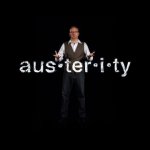 Foucault often spoke of critique in vague terms. A truth that “functions as a weapon,” on the one hand, but which can “light fires, watch the grass grow, listen to the wind, and catch the sea foam in the breeze and scatter it,” on the other. Statements like these appear to us as riddles. But what is critique for Foucault, really? One fascinating answer to this question can be found in his short piece, “What is Enlightenment?”
Foucault often spoke of critique in vague terms. A truth that “functions as a weapon,” on the one hand, but which can “light fires, watch the grass grow, listen to the wind, and catch the sea foam in the breeze and scatter it,” on the other. Statements like these appear to us as riddles. But what is critique for Foucault, really? One fascinating answer to this question can be found in his short piece, “What is Enlightenment?”
Now, I confess, when I was in graduate school I used to think this was one of the toughest bits of Foucault reading out there. I suppose I still do. Where I really struggle is later in the piece, when he gets into the opposition between two ideal types, the man of the modern world and the flâneur. Here, he paraphrases Baudelaire’s description of the flâneur as one who adopts “the spectator’s posture.” It seems to me that the flâneur is kind of a drop out, or somehow self-involved – a cynical figure who refuses to engage with the world around him. Either way, against this passive figure (which Foucault does not praise), the modern man has an active stance in the world. His being in the world somehow changes it, but not fundamentally. Foucault observes that the modern man’s attitude towards the world, and himself, involves both ambition and acceptance of certain limits to that ambition. That is, it “does not entail an annulling of reality, but a difficult interplay between the truth of what is real and the exercise of freedom.” In this sense, modern man is he who strives to take what is natural in the world, including his own self, and make it somehow more than it was. And the emblematic figure of the modern subject here is the dandy, the ultimate entrepreneur of himself, who is compelled constantly to “invent himself” in relation to those limits. Perfect, or at least moving towards some sort of optimal state.
Continue reading →
Like this:
Like Loading...



